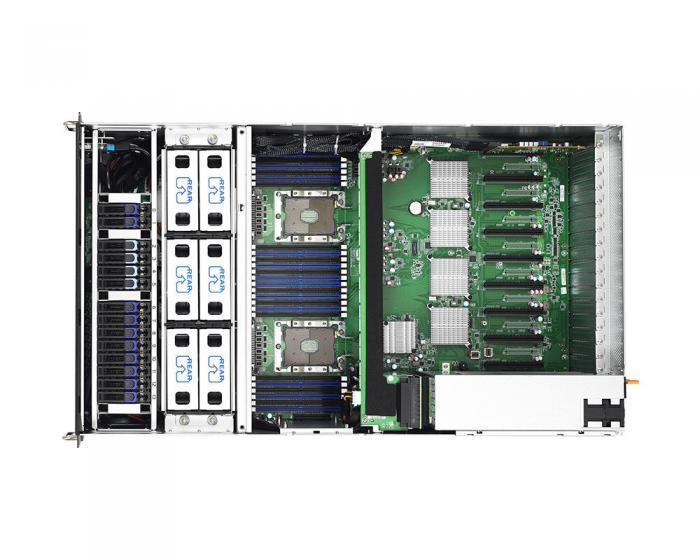
When you’re deciding between leasing and buying, you’re not just weighing upfront costs against long-term ownership – you’re making a crucial choice about your tax strategy. The difference between lease payments as operating expenses and a purchased GPU server as a capital expenditure has significant implications for your cash flow and tax benefits. But which approach will ultimately benefit your business more? You’ll want to explore the details to determine whether immediate tax relief or depreciation benefits over time will have the greatest impact on your bottom line.
Understanding GPU Server Expenses
Several factors contribute to the overall cost of a GPU server, and understanding these expenses is crucial for making an informed decision.
You’ll need to consider the upfront costs of purchasing a GPU server, including the hardware itself, software licenses, and any necessary infrastructure upgrades.
Additionally, you’ll need to factor in ongoing expenses like maintenance, support, and upgrades to ensure your server stays up-to-date and running smoothly.
Energy consumption is another important consideration, as high-performance GPU servers can be power-hungry.
You’ll also need to think about the cost of downtime, should your server fail or require maintenance.
Furthermore, you may need to invest in additional IT staff or training to ensure your team can effectively utilize the GPU server.
Lastly, you’ll need to consider the server’s lifespan and plan for eventual upgrades or replacement.
Lease Payments as Tax Deductions
Your business’s bottom line gets a direct boost when you lease a GPU server, as these expenditures qualify as tax deductible operating expenses.
You can claim lease payments as business expenses on your tax return, reducing your overall tax liability. This results in significant savings, as you’re not required to pay taxes on the full amount of the lease.
Additionally, you can claim the entire lease payment as an expense in the year you incur it, providing immediate tax relief. This can be particularly beneficial if you’re expecting a high tax bill or want to minimize your taxable income.
It’s essential to keep accurate records of your lease payments, as you’ll need to provide documentation to support your GPUサーバー 節税 deductions. By leasing a GPU server, you can optimize your tax strategy and allocate more resources to driving business growth.
Depreciation Benefits of Ownership
Owning a GPU server lets you tap into depreciation benefits, which can significantly reduce your taxable income.
As a server owner, you can claim depreciation expenses on your tax return, which can lead to substantial tax savings. The IRS allows you to depreciate the server’s value over its useful life, typically three to five years for GPU servers.
You can choose from various depreciation methods, such as the General Depreciation System (GDS) or the Modified Accelerated Cost Recovery System (MACRS). By depreciating your GPU server, you’ll reduce your taxable income, resulting in lower tax liabilities.
Additionally, you can claim bonus depreciation, which allows you to claim an additional first-year depreciation deduction. This can provide significant tax relief, especially in the initial years of server operation.
Operating Expenses Vs. Capital Expenditures
As you weigh the pros and cons of a GPU server, you’ll encounter a crucial distinction between operating expenses and capital expenditures.
When you lease a GPU server, the monthly rental fee is considered an operating expense. This means you can deduct the entire lease payment from your business income in the same year.
On the other hand, if you purchase a GPU server, the upfront cost is considered a capital expenditure. You can only depreciate the asset over its useful life, typically several years.
This distinction has significant implications for your cash flow and tax benefits you can claim. With leasing, you can write off the entire expense, while with buying, you can only claim a portion of the cost each year.
This difference can significantly impact your business’s financial performance and tax obligations.
Tax Implications of End-of-Lease Options
The fine print of a lease agreement often hides critical details, and the tax implications of end-of-lease options are no exception.
You must understand the tax implications to make informed decisions.
When you lease a GPU server, you typically have three end-of-lease options: return the equipment, purchase it at a predetermined price (often the residual value), or extend the lease.
If you return the equipment, you’ll continue to expense the lease payments, and there won’t be any significant tax implications.
If you decide to purchase it, you’ll need to capitalize the purchase price, which will shift the tax treatment from an operating expense to a depreciated asset.
This can affect your taxable income and cash flow.
If you extend the lease, the tax implications will remain the same as during the initial lease term.
Carefully reviewing the lease agreement and understanding the tax implications of each end-of-lease option can help you make the most tax-efficient decision for your business.
Conclusion
You’ve considered the tax implications of leasing vs. buying. Now, weigh the benefits: leasing provides immediate tax deductions on operating expenses, while buying enables depreciation over several years. Leasing offers faster tax relief, while buying allows claiming a portion of the cost each year. Choose the approach that best fits your business’s financial performance and tax obligations.
